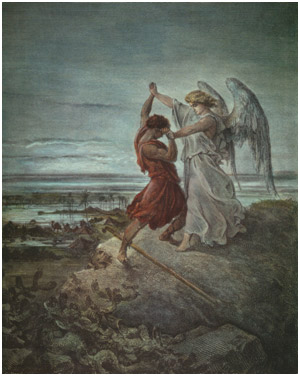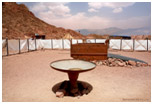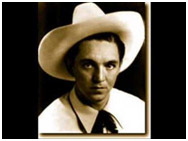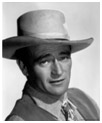His Name is Wonderful | Part 4 - His Name in My Forehead
"To him who overcomes . . . I will give him a white stone, and on the stone a new name written which no one knows except him who receives it." (Revelation 2:17, NKJV)
"He who overcomes, . . . I will write on him the name of My . . . [Eloah], and the name of the city . . . the New Jerusalem . . . And I will write on him My new name." (Revelation 3:12, NKJV)
Scripture contains many, many promises for those who will inherit eternal life. One of the most beautiful, yet least understood, is the promise that the divine name will be written on the forehead of each overcomer. Because most people have not understood what is meant by such a promise, it has long been overlooked. However, it is one of the most encouraging, hope-inspiring promises in the Bible.
Names are used to identify individuals, families, and tribes. In many cultures, a bride takes her husband's family name at marriage. In a few cultures, the man will take the bride's family name. The point, however, is that their names are joined together just as the two of them are now considered "one flesh." (Genesis 2:24)
 Likewise, when a baby is born, the child usually takes the name of the father, although in some cultures the child takes the combined names of the parents. Again, what is shared is the name. Having the family name extended to include the baby is a way of identifying the new child as part of the larger family.
Likewise, when a baby is born, the child usually takes the name of the father, although in some cultures the child takes the combined names of the parents. Again, what is shared is the name. Having the family name extended to include the baby is a way of identifying the new child as part of the larger family.
In the last twenty years, various place nouns have become popular as personal names: Dakota, China, India, Sierra, Asia, etc. Names are sometimes drawn from things in nature: Rose, Dawn, Aspen, Rain, Brooke, etc. Sometimes parents even make up a totally unique name that has no meaning, based solely on sounds that are pleasant to their ears, such as the popular LaToya, LaKeisha, Shanique, Jimarr, etc.
In Bible times, names were selected for their meaning. Parents would name a baby after a physical trait or for a character attribute they hoped to see in their child. Esau, "rough,`" was given his name because he "came out red, all over like an hairy garment." (Genesis 25:25) As Rachel was dying in childbirth, she named her youngest son, Benoni, which meant "son of my sorrow." His father changed the name to Benjamin, meaning "son of the right hand." (Genesis 35:18)
It was also a common practice to name children after the god the parents worshipped. King Nebuchadnezzar was named after the Babylonian god of literature and science, Nebo. His name meant: "Nebo, defend the boundary." Nebuchadnezzar's son, Evil-merodach, showed great kindness to King Jehoichin, releasing him from prison 37 years after King Nebuchadnezzar had imprisoned him. However, Evil-Merodach's name meant "Soldier of Marduk." The father of wicked Queen Jezebel, King Ethbaal, had a name which meant "with Baal."
Israelite parents often named their children after Yahuwah. Scripture contains hundreds of names with Yah or Yahu as part of the name.
Names ending in YAH:
#29 Abijah (AbiYAH - my Father is YAHUWAH)
#138 Adonijah (AdoniYAH - my lord is YAHUWAH)
#223 Uriah (UriYAH - my flame is YAHUWAH)
#274 Ahaziah (AchazYAH - possession of YAHUWAH)
#452 Elijah (EliYAH - my Eloah is YAHUWAH)
#3414 Jeremiah (YirmeYAH - exalted of YAHUWAH)
#5662 Obadiah (ObadYAH - Servant of YAHUWAH)
#6846 Zephaniah (TsephanYAH - hidden by YAHUWAH)
#2899 Tob-adonijah (Tob AdoniYAH - pleasing to my Lord YAHUWAH)
Names beginning in YAHU:
#3059 Jehoahaz (YAHUachaz - YAHUWAH seized)
#3075 Jehozabad (YAHUzabad - YAHUWAH endowed)
#3076 Jehohanan (YAHUchanan - YAHUWAH favored)
#3078 Jehoiada (YAHUyakin - YAHUWAH-known)
#3079 Jehoiakim (YAHUyaqim - YAHUWAH will raise)
#3088 Jehoram (YAHUram - YAHUWAH-raised)
#3085 Jehoadah (YAHUaddah - YAHUWAH adorned)
#3092 Jehoshaphat (YAHUshaphat - YAHUWAH judged)
#3100 Joel (YAhwEl - YAHUWAH is his El [God])
Name with YAHU in the middle:
#454 Elihoenai (ElYAHUenai - toward YAHUWAH are my eyes)
There were many more names that used El as a reference to "Yahuwah."
- Elisabeth - Elisbet: El of (the) oath
- Ezekiel - YechzqEl: El will strengthen
- Gabriel - Gabriy'El: man of El
- Michael - Miyka'El: who is like El?
- Mishael - Mysha'El: Who is what El is
- Samuel - Shemuw'El: heard of El
- Daniel - DaniEl: judge of El
The practice of naming a child after the national Hebrew deity was so wide-spread in Israel, that even wicked kings named their sons after Yahuwah. Ahaz, one of the worst kings Israel ever had, named his son Hezekiah (YechizqiYAH, meaning "my strength is YAHUWAH." See 1 Chronicles 3:13.)
Jehoiachin (YAHUWAHkeen) "did that which was evil in the sight" of Yahuwah (2 Chronicles 36:9), even though his name meant "Yahuwah will establish." His brother Zedekiah, the last king of Israel, was equally corrupt although his name (TsidekiYAH) meant "my righteousness is YAHUWAH."
Under such practices, it is likely there were some people who did not like the names given them. One person in particular who hated his name was the patriarch, Jacob. As the younger twin, he was born holding onto his brother's heel. (Genesis 25:26) It was for this reason that he was called Jacob, a name which means "supplanter."
"Supplant" is defined as: "to take the place of [something]; to supersede, especially through force, scheming, or treachery; to remove or uproot in order to replace with something else."1 What a name with which to burden a child! One might just as well have called him Sneak or Cheater.
Divine wisdom has provided in the story of Jacob the key to understanding the promise that the Father's name will be written in the forehead of all who gain eternal life. It is a story that should inspire hope in the heart of everyone who has ever sinned and longed for forgiveness and restoration.
The history of Jacob's life, as preserved in the Bible, is one long record of dishonesty; of his attempts, in real life, to supplant his older brother, Esau. As the first born son, Esau was entitled to inherit three things:
1. The role as patriarch of the family, with the family line continuing through his descendants;
2. All the father's wealth;
3. Priest and spiritual leader of the home, the ancestor of the promised Messiah.
While still young, Esau was impatient of restraint. He was a hunter that loved the wild freedom of the chase. His contempt for the high honor of being the inheritor of the promise that through his seed the Messiah would be born is seen in the fact that he married heathen wives. These women "were a grief of mind unto Isaac and to Rebekah." (Genesis 26:35, KJV) The negative influence the two heathens brought to the home and the resulting unhappiness was so great that Rebekah told Isaac, "I am weary of my life because of the daughters of Heth [Esau's wives]: if Jacob take a wife of the daughters of Heth, such as these which are of the daughters of the land, what good shall my life do me?" (Genesis 27:46)
Jacob, by contrast, "was a plain man, dwelling in tents." (Genesis 25:27) His gentle, giving nature found much greater pleasure in the company of the sheep and lambs, and helping his mother around home, than in ranging over the wilds, looking for animals to kill. Jacob did not envy Esau's position as first born entitled to all the wealth and power that would come with being head of the family. The one thing Jacob wanted more than any other was to inherit the spiritual birthright. Jacob longed to be priest of the family, the ancestor of the promised Messiah.
Esau's contempt for the high privilege of being the progenitor of the Promised One, only served to increase Jacob's longing to be that himself. One day, Jacob was out in the field watching the sheep, cooking some food for himself over a campfire. Esau staggered in famished and exhausted. Smelling Jacob's pottage, he demanded, "Feed me . . . for I am faint." (Genesis 25:30)
Jacob seized the opportunity: "Sell me this day thy birthright." (Verse 31.)
Esau protested, "Behold, I am at the point to die: and what profit shall this birthright do to me?" (Verse 32.)
But Jacob was insistent. No birthright; no food. "Swear to me this day; and he sware unto him: and he sold his birthright unto Jacob. Then Jacob gave Esau bread and pottage of lentiles; and he did eat and drink, and rose up, and went his way: thus Esau despised his birthright." (Genesis 25:33, 34, KJV)
While Esau certainly despised his birthright, being pressured to bargain it away was not right, either. This sin of Jacob's was compounded later when Isaac was going to pronounce the birthright blessing on Esau anyway. Jacob went into his blind father and deceived him into giving him the birthright blessing.
Esau was so furious over this lie, that he threatened Jacob's life. Jacob fled to Haran and lived there for over 20 years. All this time, regret was a cancer eating away at his soul. Jacob knew that Yahuwah could not honor what he had done: gaining the birthright by deceit. Every time his name was said, it was a reminder of his sin: "Jacob! Supplanter! Sneak! Cheater!"
When he finally returned to Canaan, he received word that Esau was coming toward him with 400 men, doubtless seeking revenge.
The climax of Jacob's life had come. He had sought forgiveness for his great sin, but if only he could know for sure that he had been forgiven and restored to the divine favor! In great agony of mind and spirit, he sent his family and the animals over the brook, Jabbok, while he remained behind to pray.
And a Man wrestled with him until the breaking of day. Now when He saw that He did not prevail against him, . . . He said, "Let Me go, for the day breaks." But he [Jacob] said, "I will not let You go unless You bless me!" (Genesis 32:25-26, NKJV)
 Had Jacob not previously repented of his great sin, such audacity would have been met with instant death. But his was the plea of a soul that knew his sinfulness and, trusting in the promises of a covenant-keeping heavenly Father, cast all upon Him. The gracious answer given to Jacob, is an assurance for all. When Jacob begged for a divine blessing the response was:
Had Jacob not previously repented of his great sin, such audacity would have been met with instant death. But his was the plea of a soul that knew his sinfulness and, trusting in the promises of a covenant-keeping heavenly Father, cast all upon Him. The gracious answer given to Jacob, is an assurance for all. When Jacob begged for a divine blessing the response was:
"What is thy name?" And he said, "Jacob." And He said, "Thy name shall be called no more Jacob, but Israel: for as a prince hast thou power with . . . [Elohim] and with men, and hast prevailed." (Genesis 32:27, 28, KJV)
What a gift! What reassurance! Jacob had understood that his name, Supplanter, was reflective of his sins. Now his name had been changed to "Israel" which meant "prince with El." And to underscore the meaning of his new name so that there would be no doubts, the Angel explained, "for as a prince has thou power with Elohim and with men, and hast prevailed."
The significance of that statement was not lost on Jacob/Israel. His sins had been forgiven! He had been restored to favor with Yahuwah. Furthermore, the fact that he had "prevailed" with the Almighty was a promise that he would also prevail in his encounter with Esau the next day.
The fact that his name was changed in answer to his request for a blessing, signified that his sinful nature had been cleansed and restored in the image of his Maker. This was the blessing for which Jacob's soul had longed and which his new name revealed had been granted to him.
Just like Jacob, everyone alive has sinned and fallen short of the glory of Yahuwah. All have tendencies to sin that are both inherited and cultivated. But there is hope for modern Jacobs, too! Isaiah 58, a chapter addressed especially to the final generation, states: "Cry aloud, spare not; Lift up your voice like a trumpet; Tell My people their transgression, And the house of Jacob their sins." (Isaiah 58:1, NKJV)
This is an amazing statement. It was made centuries after Jacob had been forgiven and gifted with a new nature and new name: Israel. The fact that the name "Jacob" is used in this passage is revealing. The call is sent to those who claim to be Yahuwah's people, but are sinning. It is a call to repent and be forgiven.
Sin defaces the image of the Creator in His human children. Recreation of the mind can only be done by the Creator. Sanctification is a gift. Exodus 31:13 states: "Surely My Sabbaths you shall keep, for it is a sign between Me and you throughout your generations, that you may know that I am . . . [Yahuwah] who sanctifies you." (NKJV)
Obedience to the law of Yahuwah is required in all that would be sanctified. Of course, this is not something which is possible in human strength. This is why Scripture repeatedly urges all to "call upon the name of Yahuwah."
Isaiah 58 closes with a very beautiful promise for all who will return in repentance to Yahuwah and, in His strength, keep His law.
If you turn away your foot from the Sabbath, From doing your pleasure on My holy day, And call the Sabbath a delight, The holy day of . . . [Yahuwah] honorable, And shall honor Him, not doing your own ways, Nor finding your own pleasure, Nor speaking your own words, Then you shall delight yourself in . . . [Yahuwah]; And I will cause you to ride on the high hills of the earth, And feed you with the heritage of Jacob your father. The mouth of . . . [Yahuwah] has spoken. (Isaiah 58:13-14, NKJV)
The heritage of Jacob our father is a new name, indicative of a new, transformed and recreated character! The name of the Saviour is itself an encouragement to all to "call upon Him" because the very name is a promise that "Yahuwah saves!"
Call upon Him today. He is waiting with arms wide open to receive all who will come to Him. You, too may receive a new, cleansed and restored character - a new name written in your forehead, the seat of subconscious thought. His promise to you is: "the one who comes to Me I will by no means cast out." (John 6:37, NKJV)
I was blessed to have a number of talented, dedicated Sabbath School teachers while growing up. Of them all, one woman was by far the best and was the favorite of all the kids. A skilled public speaker and a committed Christian, she understood the power of a good visual aid. From a pirate’s treasure chest filled with a trove of worldly “allurements” to her best crystal vase filled with beautiful flowers, rotten food and dog poop to illustrate secret sin hiding within a "beautiful Christian," her visual aids captured our attention while teaching profound spiritual truths in ways our young minds could grasp.
The ability of a good visual aid to illustrate hard-to-understand concepts cannot be overestimated. Yahuwah Himself used a very elaborate visual aid for teaching one of the hardest to understand concepts in the plan of redemption: the cleansing of the soul itself.
The divine plan to meet the emergency of sin, the plan of redemption, was no simple, haphazard action put into place at the last minute. It was a part of those things which had been kept in silence from time immemorial and which would have forever remained hidden, had Adam and Eve not sinned.
The plan of salvation embraced much more than forgiveness of sins. It involved more than being able to give repentant sinners eternal life. The ultimate goal in the plan of redemption was to restore in man the very image of Yahuwah: to recreate the human mind so that it would no longer be like Satan’s mind but would henceforth be one with the divine mind.
Spiritual things are spiritually discerned. The ability to grasp deep sacred truths was lost at the fall when mankind took on the nature of Satan. In order to teach sin-darkened minds the truths of the plan of salvation, the Creator designed a visual aid: the most beautiful, complex, multi-textured visual aid ever created. Yahuwah gave us the sanctuary.
The sanctuary used symbols to explain the principles involved in the salvation, the salvaging, of the human race. Because “the wages of sin is death” (Romans 6:23) and “without the shedding of blood there is no remission” of sin (Hebrews 9:22), death was required to meet the demands of the broken divine law. This was symbolized in the sanctuary service by the animal sacrifices. However, the blood of the lambs was only a symbol of the blood that would be shed by Yahushua, the “Lamb of . . . [Yahuwah] who takes away the sin of the world!” (John 1:29, NKJV)
The blood shed by lambs, goats and bulls never cleansed anyone of sin! They could not cleanse and recreate the soul simply because they were nothing more than a symbol.
The Law possessed only a dim outline of the benefits . . . [Yahushua] would bring and did not actually reproduce them. Consequently it was incapable of perfecting the souls of those who offered their regular annual sacrifices. For if it had, surely the sacrifices would have been discontinued – on the grounds that the worshippers, having been really cleansed, would have had no further consciousness of sin. In practice, however, the sacrifices amount to an annual reminder of sins; for the blood of bulls and goats cannot really remove the guilt of sin. (Hebrews 10:1-4, J. B. Phillips Translation, emphasis supplied.)
In other words, the law requiring animal sacrifices was but a faint representation of what would be accomplished by the true sacrifice: the death of Yahushua on the cross. This can be seen by the fact that people had to keep offering sacrifices. They kept sinning because the blood of animals did not have the power to recreate their souls in the divine image!
Therefore, when . . . [Yahushua] enters the world, he says:
Sacrifice and offering thou wouldest not,
But a body didst thou prepare for me;
In whole burnt offerings and sacrifices for sin thou hadst no pleasure:
Then said I, Lo, I am come
(In the roll of the book it is written of me)
To do thy will, O . . . [Yahuwah].
After saying that . . . [Yahuwah] has “no pleasure in sacrifice, offering and burnt-offering” (which was made according to the Law), . . . [Yahushua] then says, “Lo, I am come to do thy will.” That means that he is dispensing with the old order of sacrifices, and establishing a new order of obedience to the will of . . . [Yahuwah], and in that will we have been made holy by the single unique offering of the body of . . . [Yahushua our Saviour.] (Hebrews 10:5-10, J. B. Phillips Translation, emphasis supplied.)
The Israelites in Yahushua’s day looked to the sacrifices themselves as being the thing that made them holy. However, the sacrifices were merely visual aids! They were object lessons to point to the true cleansing that could occur in the mind and soul of the individual after Yahushua’s death.
 |
| The entire tabernacle is a symbol, a visual aid of the plan of salvation. |
Many wonderful studies have been done on the beauty and the meaning contained in the sanctuary service. WLC encourages the reader to make a study of this very important topic. There are layers upon layers of valuable instruction contained in this multi-faceted visual aid. The most important meaning to be grasped, however, is what the sanctuary teaches about the human soul.
The sanctuary consisted of three areas:
- The courtyard, where sacrifices were performed.
- The Holy Place where the blood of the sacrificial animal was sprinkled, transferring the sin of the repentant person to the sanctuary.
- The Most Holy Place. This was entered only once each year by the High Priest himself on the Day of Atonement. This solemn service “cleansed” the sanctuary of the record of sins that had been accumulating there all the previous year.
Each of these three places represents an aspect of the individual life.
 |
| The courtyard represents words and actions. (Picture courtesy of BrianMorley.com.) |
The Courtyard
The courtyard is a symbol of the words and actions of every individual. A person’s words and actions are seen and heard by others. There is nothing hidden in the courtyard of a person’s life. What occurs in the courtyard, the words spoken, the deeds done are all the result of what occurs in that person’s thoughts and feelings.
The Holy Place
The Holy Place represents the character of a person, his thoughts and his feelings. This is the only thing anyone gets to take to heaven. No one takes his wealth; no one takes her social status; none are guaranteed that they can even take their friends and families. The only thing taken to heaven is the character that has been developed during probationary time on earth. This is why it is extremely important that each one exercise control over his or her thoughts and feelings. None are to give free reign to their emotions, allowing words to descend upon another like desolating hail. It is a positive duty to exercise restraint on both thoughts and feelings.
The Most Holy Place
A person’s thoughts and feelings flow directly from his or her attitudes and beliefs. Just as the average Israelite did not have access to the Most Holy Place, so the individual cannot access his or her subconscious mind. This is located in the frontal lobe of the brain, just behind the forehead. It is here, in the Most Holy Place of the individual, in the subconscious mind, that divine cleansing, made possible by the Lamb of Yah that takes away the sins of the world, must be done.
This cannot be done by any words or actions preformed in the “courtyard” of the life. The scribes and the Pharisees at Yahushua’s first coming were focused on the “courtyard” of their lives. They were trying to be saved by their works; they were trying to work their way to heaven by their many sacrifices, by fasting several times a week, by their carefulness in keeping the law to perfection. They were very critical of all who did not keep the law in the manner they thought was necessary in order to be saved.
One day, some scribes and Pharisees came to Yahushua and accused the disciples of transgressing “the tradition of the elders. For they do not wash their hands when they eat bread.” (Matthew 15:2)
The Pharisees were scrupulously careful when it came to keeping the Levitical laws governing cleanliness. They had even added to the law of Moses, thinking that if the added traditions were also kept, this would insure that the divine law would never be broken. Their entire focus was on the words and actions of a person, completely overlooking the inner cleansing that was of the most importance.
Yahushua clearly discerned that the Pharisees were focusing on the outward “courtyard” life while completely ignoring the “Most Holy Place” cleanliness of all who would inherit eternal life. He emphatically stated: “Listen to me, and understand this: a man is not defiled by what goes into his mouth, but by what comes out of it.” (Matthew 15:10, 11, New English Bible)
Later, when the disciples asked Him to explain, the Saviour said,
Do you not see that whatever goes in by the mouth passes into the stomach and so is discharged into the drain? But what comes out of the mouth has its origins in the heart; and that is what defiles a man. Wicked thoughts, murder, adultery, fornication, theft, perjury, slander – these all proceed from the heart; and these are the things that defile a man. (Matthew 15:17-20, New English Bible, emphasis supplied.)
The words and actions of the courtyard, are merely the outward revelation of what the thoughts and feelings have been, all of which has its origins in the attitudes and beliefs buried deep in the subconscious mind. One can almost hear the chuckle in the Saviour’s voice as He added, “But to eat with unwashed hands does not defile a man.” (Matthew 15:20, NKJV)
This was a recurrent theme in the Saviour’s teaching.
There is no such thing as a good tree producing worthless fruit, nor yet a worthless tree producing good fruit. For each tree is known by its own fruit: you do not gather figs from thistles, and you do not pick grapes from brambles. A good man produces good from the store of good within himself; and an evil man from evil within produces evil. For the words that the mouth utters come from the overflowing of the heart. (Luke 6:43-45, New English Bible)
In order for the acts of the "courtyard" to be pure, the thoughts and feelings flowing from the "Holy Place" must be unpolluted. In order for the thoughts and feelings to be holy and unpolluted, the attitudes and beliefs within the subconscious "Most Holy Place" must be cleansed and one with the divine nature.
Such a deep cleansing of the frontal lobe is impossible for anyone to do for himself. This can only be done for the person by the Saviour. My teacher's crystal vase containing lovely daffodils stuck into stinky rotten food and dog poop could not clean itself out. Only a power outside of itself could get the filth out. This is done in the heart of a person by one power only: divine power exercised on behalf of the sinner when he claims the promises by faith.
When the subconscious mind is cleansed and brought into oneness with the divine mind, the heart overflows with love, joy, peace, patience, kindness, forbearance and every other divine attribute. Peter understood this when he wrote:
Grace and peace be multiplied unto you through the knowledge of . . . [Yahuwah], and of . . . [Yahushua our Master], according as His divine power hath given unto us all things that pertain unto life and godliness, through the knowledge of Him that hath called us to glory and virtue: Whereby are given unto us exceeding great and precious promises: that by these ye might be partakers of the divine nature . . . . (2 Peter 1:2-4, KJV, emphasis supplied.)
The Most Holy Place of the individual heart is cleansed when Yahushua, the great High Priest, removes the satanic nature everyone is born with and recreates the subconscious mind to reflect the divine image. The entire book of Hebrews is an explanation of the high priestly ministry of Yahushua who cleanses the subconscious soul of all who come to Him in faith.
Faith is not feeling. The two are completely separate. Many people wait to feel that they are cleansed before believing it. Such make a mistake. Faith is "the assent of the mind to the truth of what is declared by another, resting on his authority and veracity [truthfulness], without other evidence."2 In other words, faith is taking Yahuwah at His word because of who He is, without needing any other proof. It is believing that He will keep His promises because He says so.
"Faith is the substance [margin: assurance] of things hoped for, the evidence of things not seen." (Hebrews 11:1, NKJV) Faith is a gift that Yahuwah gives, but it is ours to choose whether or not we will exercise that faith to claim the desired promise. "If you can believe, all things are possible to him who believes." (Mark 9:23, NKJV)
Do you want cleansing? Do you want restoration? Do you want the divine image recreated in your subconscious mind? The promise is yours to claim if that is your desire.
The reality of the power of Yahuwah to recreate is no secret to anyone who has ever experienced that restoring power.
It was a strange group to invite for a bible study, but Henrietta Mears was determined. She had been blessed by the young visiting evangelist, and wanted her friends to receive the same blessing. And so it was that a glittering group of famous Hollywood personalities gathered in the Mears' home in Beverly Hills for a Bible study. Among those who came was the hard drinking, hard living star of westerns, Stuart Hamblen.
 |
| Stuart Hamblen: actor, singer, radio personality |
Although Stuart was almost as famous for his gambling and brawling as he was for his singing, acting and popular radio show, the young minister and the movie star hit it off. When the evangelist invited Stuart to the meetings, Hamblen accepted and before the series was over, had surrendered his life to the Saviour.
 |
| John Wayne |
The news spread. Stuart Hamblen had been converted! Newspapers picked up the story and soon all of Los Angeles was buzzing about the tough-guy star who was now a Christian. Stuart himself was not silent about the transformation that had taken place in his life. On his radio show, he joyfully shared his testimony. He soon raised the ire of his sponsors when he refused to allow any beer companies to advertise during his show.
One day he met up with a friend, John, a fellow actor with whom he had starred in a number of films.“What’s this I hear about you, Stuart?” asked John.
“Well, Duke, it is no secret what God can do," Hamblen smiled
“Hm. Sounds like a song,” John Wayne observed. Stuart went home and turned the statement into a song, the first of over 220 songs that he would write before his death in 1989. It is a simple, yet powerful statement of the love of the heavenly Father to accept and transform sinners by His grace.
It is no secret what Yah can do.
What He’s done for others, He’ll do for you.
With arms wide open, He’ll pardon you.
It is no secret what Yah can do.3
Within the heart of every person who has ever lived, be he noble king or sly thief, be she treasured wife, or hardened hooker, is the longing to be loved and accepted for who one really is - and despite all that one is really not. Everyone yearns for understanding.
It has often been said that there is a "God-shaped hole" in the heart of everyone. Deep in the heart of all is a yearning for a oneness with the Creator. Because of sin, it is often not recognized for what it is. Fear of Yahuwah, and doubt of His love, make the desire an unfulfilled agony of longing.
This wrenching heart-cry was so well stated in one song that it struck a responsive chord in many hearts. Many people identified with the longing expressed in the song.
If I had just one wish,
Only one demand,
I hope he's not like me.
I hope he understands . . . 4
Sin destroyed the knowledge of Yahuwah in the heart of man. It almost entirely defaced the divine image in the soul. However, all who will call upon Yahuwah, seeking forgiveness and cleansing, will be restored. The image of the divine will be restored and a people will reflect the glory, the character, of the Creator.
Scripture contains 360 unique composite names of Yahuwah. Each name reflects a different facet of the multi-faceted divine character. The longing of the Father to reveal His character to His straying, earth-bound children can be seen in the many different ways He represents Himself in these beautiful names.
Some of the names are strongly masculine names: I AM your Strength; I AM your Shield; I AM your Kinsman; I AM a Man of War. These names reassure His children of His strength and power; His ability to provide for every need.
Other names, to human ears, sound feminine: Rose of Sharon; Lily of the Valley; the Many-Breasted One. These names are a comforting promise of gentle understanding, loving-kindness and nurturing care.
The whole earth will be filled with the knowledge of the "glory" (character) of Yahuwah, when His people, repentant, forgiven, cleansed, and recreated, perfectly reflect His character. This is having the Father's name written in the forehead. Finite humanity, restored into the image of the divine, will have the high honor of reflecting different facets of the divine character.
This does not destroy the individual personality. Individuality is not absorbed and obliterated. Rather, the true one-of-a-kind beauty of a person is unfolded. Purified from all Satanic tendencies that warped, the true character now shines forth as it was intended to be: a revelation of a unique aspect of the divine character.
 Scripture describes Moses as the meekest man in the world. "Now the man Moses was very meek, above all the men which were upon the face of the earth." (Numbers 12:3, KJV) Many modern versions translate the word as "humble," which is unfortunate. The word humble does not have the same meaning as meek. Various definitions of humble include lowly, submissive, to be abased and to be brought down. People often equate "meek" with "humble" in their minds.
Scripture describes Moses as the meekest man in the world. "Now the man Moses was very meek, above all the men which were upon the face of the earth." (Numbers 12:3, KJV) Many modern versions translate the word as "humble," which is unfortunate. The word humble does not have the same meaning as meek. Various definitions of humble include lowly, submissive, to be abased and to be brought down. People often equate "meek" with "humble" in their minds.
But a person who is meek is much more than merely humble. Meekness is too often viewed with contempt as weak or spineless. Most especially is this true in Western cultures where individuality is lauded as supreme and songs such as "I Did It My Way" become popular hits. However, a person who is meek actually will always have greater strength of character than a person who is a slave to his emotions, exercising no control over his emotions or his tongue.
The dictionary definition sheds light on this precious, often under-rated divine character attribute.
MEEK: Mild of temper; soft; gentle; not easily provoked or irritated; yielding; given to forbearance under injuries.5
A person who is meek is not weak-spirited. Moses had quite the temper! One of his displays of temper led to the murder of an Egyptian overseer. (Exodus 2:11, 12) Eighty years later, another display of temper (under extreme provocation) led to him being denied the privilege of leading the Israelites into the Promised Land. (Numbers 20:12) However, in the divine school, instructed by the Greatest Teacher the world has ever known, Moses learned to control his temper.
That which had been a great weakness in his character and had led to the act of murder, became sanctified under the divine influence. Moses gained great self-control. He became one who was meek; a man "given to forbearance under injuries."6 "Forbearance" is simply "self-control; patient restraint."7 Meekness does not deny that a wrong or an injustice has been committed. But, in the face of admitted insult and injury, a meek person exercises "self-control" and is patient and forgiving. Moses' character was not spineless and without feeling, once it was purified of self. It was stronger than before in true strength of character.
More than anyone else on the face of the earth, Moses was privileged to reflect the beauty of a divine character trait rarely seen in the sons of men. Yahuwah Himself is very meek. He exercises great self-control and is patient under personal injury. "For I AM . . . [Yahuwah], I change not; therefore ye sons of Jacob are not consumed." (Malachi 3:6, KJV)
meek. He exercises great self-control and is patient under personal injury. "For I AM . . . [Yahuwah], I change not; therefore ye sons of Jacob are not consumed." (Malachi 3:6, KJV)
Each person saved will have a well-balanced character. But within that, each will have a distinct personality which has developed to a high degree some unique facet of the divine character. A child who, in his own life, reveals the Father's character as one that is "disposed to do good to others, and to make them happy by granting their requests, supplying their wants or assisting them in distress"8 will have the name KIND written in his forehead. Kindness is the divine attribute that has been especially developed in his own character.
A person who has, by faith in Yahushua, developed the divine ability to always do what needs to be done because it must be done, regardless of the cost, fear or danger, will have COURAGEOUS written in his forehead. Courage is the particular facet of the divine character that is most clearly demonstrated in his life.
For another who, in her life, reveals Yahuwah's own "benevolence, mildness or tenderness of heart which disposes a person to overlook injuries, or to treat an offender better than he deserves,"9 receives the name MERCY in her forehead, for that is the aspect of Yahuwah's character which she most clearly displays in her own character.
A personal acquaintance once shared that, as a young person, she had read that the Saviour "ever lived to bless others." At the time, she determined in her heart that she wanted the same to be true of her as well. Now, years later, she is the most unselfish, generous person I know. Her self-forgetful generosity is not limited to just money, although, when circumstances require it, she is generous with money as well. She gives of herself in a multitude of ways. Truly, she ever lives to bless others.
The Bible closes with a promise. The veil is drawn aside on eternity future and one is permitted to gaze into that boundless realm of bliss. After describing the water of life, "clear as crystal, proceeding out of the throne" (Revelation 22:1), the promise is given for all time to come: "there shall be no more curse: but the throne of . . . [Yahuwah] and of the Lamb shall be in it; and His servants shall serve Him: And they shall see His face; and His name shall be in their foreheads." (Revelation 22:3,4)
 Yahushua took on the fallen nature of Adam after sin. The Son revealed what the Father would be like if He were a human. However, Yahushua never sinned! He had no cultivated tendencies to wrong that had to be overcome. The long running controversy between Good and Evil, Holiness and Wickedness is finished when Yahuwah has a group of people fully surrendered to Him, cleansed and restored into the divine image. People who have sinned but who, through repentance and forgiveness now have the divine impress on their subconscious brain: His name in their foreheads.
Yahushua took on the fallen nature of Adam after sin. The Son revealed what the Father would be like if He were a human. However, Yahushua never sinned! He had no cultivated tendencies to wrong that had to be overcome. The long running controversy between Good and Evil, Holiness and Wickedness is finished when Yahuwah has a group of people fully surrendered to Him, cleansed and restored into the divine image. People who have sinned but who, through repentance and forgiveness now have the divine impress on their subconscious brain: His name in their foreheads.
The earth will be lightened with the glory of the Eternal One when His character is revealed in His waiting people.
The world will know what Yahuwah would be like, what words He would say, how He would act, as a 55-year old man facing the loss of his job for refusing to break the Sabbath. The world will see demonstrated Yahuwah's own reactions, what He would do, if He were a 34-year old mother of three, losing her marriage for following truth. The divine character will be displayed in a young person who, when faced with bright career possibilities, will be willing to count all things as loss in order to stay true to principle.
The world will see how Yahuwah would act under all circumstances, and in all situations because His character, His thoughts and feelings, will be the thoughts and feelings, the words and actions of His people.
All who enter Heaven will have Yahuwah's name written in the forehead, written there because He is the center of their thoughts. No one can get himself ready, but Yahuwah's very name is a promise that He will BE everything you need Him to be, in order to get ready.
Call upon the name of Yahuwah. Trust Him. You, too, can reflect the glory of the divine character.
"He is also able to save to the uttermost those who come to . . . [Yahuwah] through Him, since He ever lives to make intercession for them." (Hebrews 7:25, NKJV)
- His Name is Wonderful | Part 1 - Call Upon His Name
- His Name is Wonderful | Part 2 - In the Name of the Father
- His Name is Wonderful | Part 3 - In the Name of the Son
__________________________________________________________________________________
1 Webster's New Universal Unabridged Dictionary, Second ed., 1983.
2 American Dictionary of the English Language, Noah Webster, ed., 1828.
3 Adapted from “It Is No Secret (What God Can Do)” by Stuart Hamblen, copyright © 1950 (Renewed) Songs of Universal, Inc.
4 "With Arms Wide Open," written by Scott Stapp.
5 American Dictionary of the English Language,Noah Webster, ed., 1828.
6 Ibid.
7 Webster's New Universal Unabridged Dictionary, 1983.
8 "Kind," American Dictionary of the English Language, Noah Webster, ed., 1828.
9 "Mercy," ibid.







